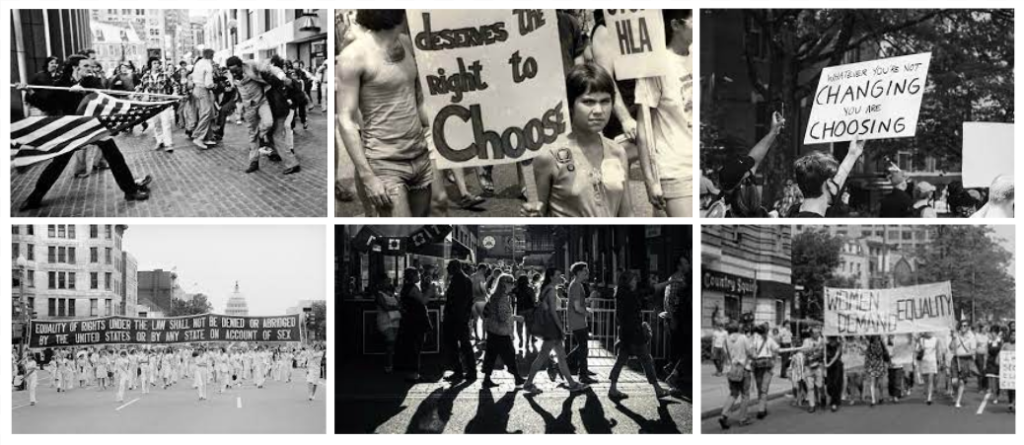Identity Politics

Identity politics is a political approach wherein people of a particular race, nationality, religion, gender, sexual orientation, social background, social class, or other identifying factors develop political agendas that are based upon these identities.
The term was first used by the Combahee River Collective, a Black feminist lesbian socialist organization active in Boston from 1974 to 1980, in 1977. It was used all over by the early 1980s, and in the ensuing decades has been employed in various cases with radically different connotations depending upon the term’s context. It has gained currency with the emergence of social activism, manifesting in various dialogues within the feminist, American civil rights, and LGBT movements, disabled groups, as well as multiple nationalist and postcolonial organizations, for example, the Black Lives Matter movement.
Cultural Wars

A culture war is a cultural conflict between social groups and the struggle for dominance of their values, beliefs, and practices. It commonly refers to topics on which there is general societal disagreement and polarization in societal values. Contemporary politics in the United States is often described as involving a “culture war.” The central claim of those describing a culture war is that the major political cleavage in contemporary American politics is no longer economic class, race, gender, geographical region, or any of the many “social structural” differences that divide our population. Rather, the idea is that a major realignment of sensibilities and controversial issues has occurred since the 1960s, and now the body politic is rent by a cultural conflict in which values, moral codes, and lifestyles are the primary objects of contention. Issues such as abortion, homosexuality, pornography, and drug use are the typical points of culture wars contention; others have used the phrase to discuss issues of multiculturalism, diversity, and school curricula. Religious commitments, symbols, and groups have been strongly connected to culture wars politics.

